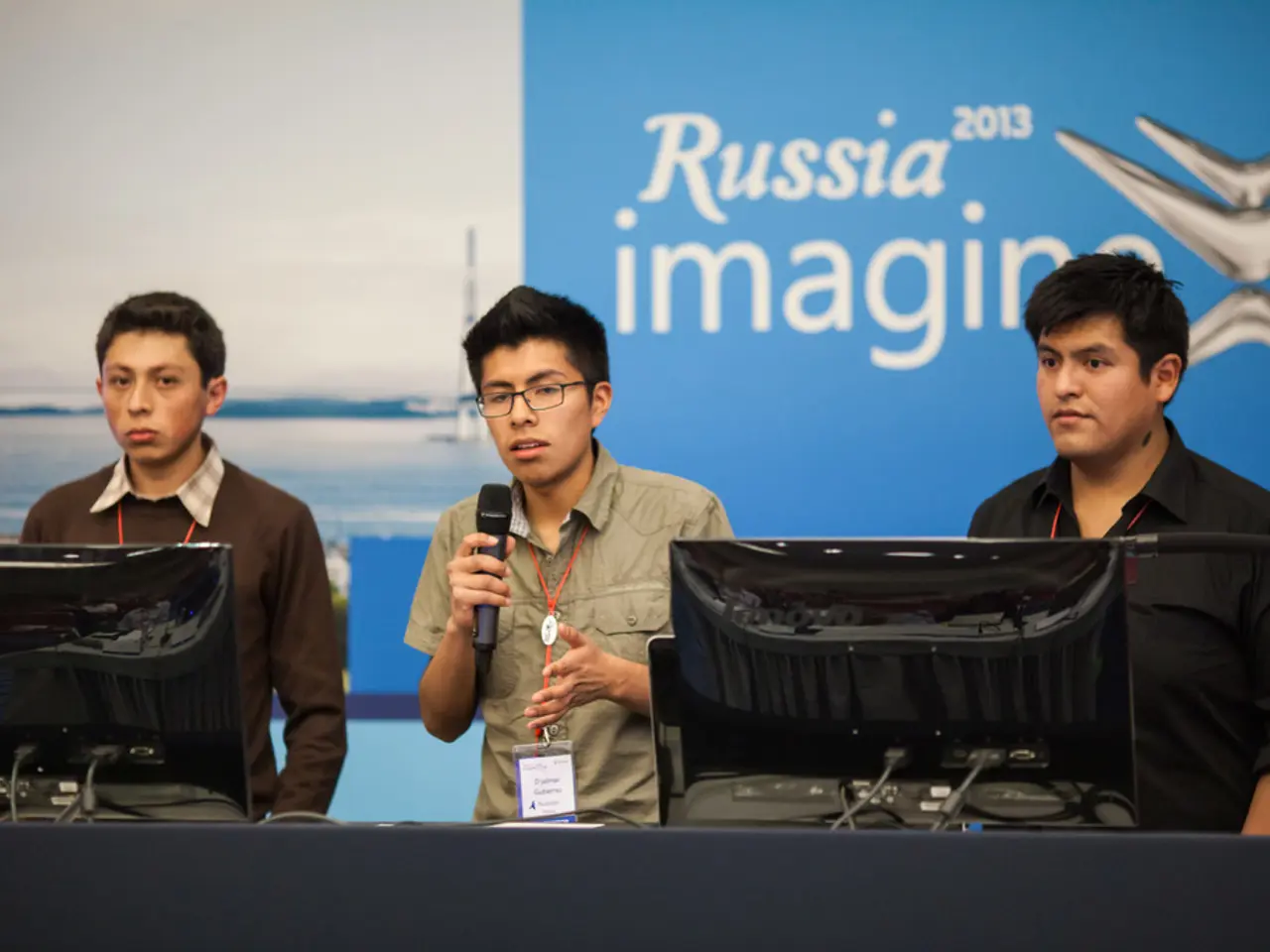Nvidia and AMD Face 15% Tax on Chip Exports to China
Nvidia and AMD Agree to Revenue-Sharing Deal with U.S. Government for AI Chip Sales to China
In a landmark agreement, Nvidia and AMD have agreed to share 15% of their revenues from sales of specific high-powered AI chips to China with the U.S. Commerce Department. This deal allows the tech giants to resume exports of these AI chips to Chinese customers under U.S. export licenses.
The deal, which was finalized after Nvidia CEO Jensen Huang met with then-President Trump on August 6, 2025, allows Nvidia to sell its AI chip called the H20 in China, and AMD to export its MI308 AI chip to China.
The agreement comes amid a 90-day tariff truce and mutual easing of some export restrictions between the U.S. and China, and amid early signs of a broader thaw in US-China trade relations.
Nvidia has stated that they follow the rules set by the U.S. government for global trade, but they did not deny the terms of the agreement. AMD has yet to comment on the deal.
The original U.S. government proposal sought a 20% revenue cut, but the final agreement settled on 15%. The companies emphasize compliance with U.S. government export control rules and expect to resume shipments under these new terms.
President Trump publicly confirmed the deal on August 11, 2025, describing it as a negotiation for limited resumption of AI chip sales, with the U.S. government receiving a share of revenue from China sales.
However, critics argue that the deal undermines national security concerns that led to the original ban, as the funds collected may not address fears that the chips could end up in Chinese military systems. Concerns persist in Washington that Beijing could push for further concessions on high-bandwidth memory chips, a critical AI component.
Beijing's cyberspace watchdog recently questioned whether the H20 contains backdoor security risks, claims Nvidia denies. The US chipmakers' agreement to hand over a portion of their Chinese revenues to the U.S. government is unprecedented in US export control history.
The Trump administration banned the sale of Nvidia's H20 entirely in April, but reversed course in June following lobbying from Nvidia boss Jensen Huang. The Biden administration's 2023 export controls barred the sale of more advanced AI hardware to Beijing, leading to the development of these specific chips for the Chinese market.
The stakes are high for both Nvidia and AMD as they face scrutiny from both U.S. and Chinese regulators. The deal reopens access to a vast customer base for Nvidia, and Bernstein analysts estimate Nvidia could sell 1.5 million H20 units in China this year, generating around $23 billion (£17.09) in revenue.
[1] Source: Financial Times (August 11, 2025)
Technology plays a significant role in this deal between Nvidia and AMD, as they have agreed to sell their high-powered AI chips, such as Nvidia's H20 and AMD's MI308, to China under U.S. export licenses. The companies will share 15% of their revenues from these sales with the U.S. Commerce Department, demonstrating the intertwined nature of technology, global trade, and geopolitics.




